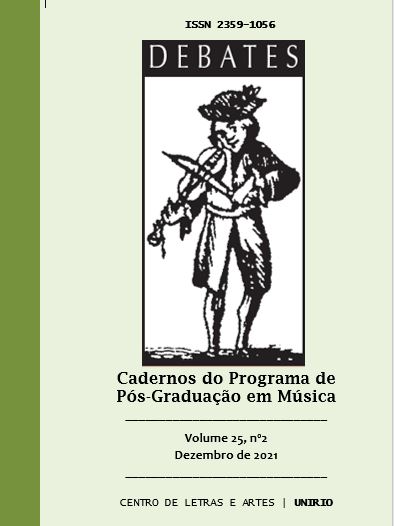Ecstasy and Music in the Tocata
case study about the use of music as “vehicle” of altered states of consciousness
Keywords:
Ecstasy, Altered states of consciousness, Musical improvisation, Perception, ShamanismAbstract
This article develops the hypothesis that music in general, and improvisation in particular, can act as a means for altered states of consciousness. The case study that delimits and guides the present investigation is the Tocata, an informal musical improvisation meeting in Florianópolis/SC. Based on ethnographic data and an interview with Polo Cabrera (host and guide for improvisation at the Tocata), we intend to describe and analyze the phenomenon known by the participants of the event as “ecstasy” or “musical ecstasy”: a supposed altered state of consciousness defined by the intense pleasure it generates in the improviser, as well as by the feeling that the music produced in this state is not exactly authored by the participants, but somehow stems from another source and is only “channeled” by the musicians. As references to this analysis, different theoretical models of the relationship between ecstasy and music are introduced from fields such as aesthetic philosophy, ethnomusicology, mysticism and shamanism.
Downloads
Downloads
Published
How to Cite
Issue
Section
License
Copyright (c) 2022 DEBATES - Cadernos do Programa de Pós-Graduação em Música

This work is licensed under a Creative Commons Attribution-NonCommercial-ShareAlike 4.0 International License.


